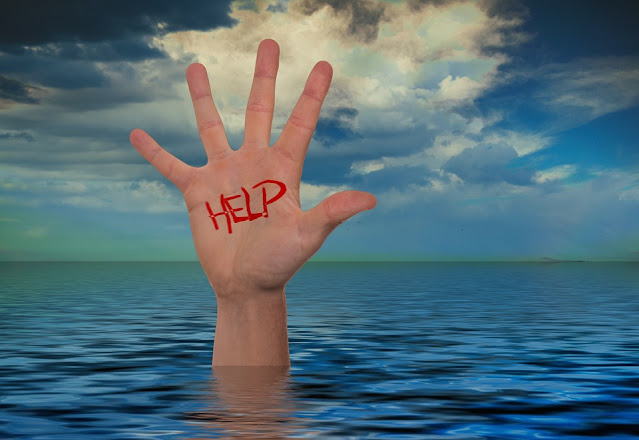When Depression Comes Back
Depression is a serious mental health concern that interferes with a person’s ability to function and perform normal daily tasks. If you have struggled with depression in the past, then you know how hard it can be to do simple things like taking a shower, doing the dishes, making your bed, or even getting out of bed. Depression also makes one withdraw from their social circles and lose interest in things that they once enjoyed. If you have battled depression before and won, then you understand what depression looks like.
However, what do you do when you start feeling blue again? Depression is a mental battle that can leave one feeling exhausted, drained, and tired. But you fought it and claimed back your mental health. Yet here you are, a few months or years later, feeling like you are about to slip back into that dreaded black hole. A depression relapse. What now? Well, the good news is that by practicing self-awareness, you can be able to spot the red flags of depression and seek help immediately. Once you realize that your mind is headed back into that dark place, you can take measures to prevent having a full blown chronic depression episode.
Warning signs of depression coming back
Loss of motivation
Have you lost your drive in life? Do you feel less enthusiastic about your favorite activities, passions, and hobbies of late? Take notice of when you start feeling less motivated about important things in your life. It is a major warning sign of a depression relapse.
Suicidal thoughts
If you have battled with depression in your past, then you may have experienced some suicidal thoughts and considered ending it all. But you managed to defeat the hopeless thoughts and here you are a few weeks, months, or years later doing better than you thought. However, over the past few days or weeks, you have begun experiencing those suicidal thoughts again. That feeling of hopelessness and despair seems to be coming back. If that sounds familiar, then you need to take immediate action and fight the depression.
You have come this far and you can go further still. Talk to someone about these thoughts. If you have close friends or family members that you can trust, open up to them about your struggles. Depression has a way of deceiving us into thinking that no one cares about us and we are all alone. It is not true.
If you look closely, you will realize that there are people in your life that care. Additionally, you can talk to a mental health professional about your battle with depression. Sometimes all you have to do to fight depression is reaching out and asking for help. If you need to talk to a mental health professional, reach out to us on +254 716605610.
Constant sadness
Feeling sad is a normal human experience especially after losing a loved one, a job, a relationship, or going through any other significant loss in your life. However, if you have been having feelings of sadness and pain without going through any major life loss, then it is a warning sign of depression coming back. Also, in case you experienced a major loss e.g. your partner breaking up with you, and you still feel sad and hopeless months after the break up, then you need to be careful.
For example, if your partner broke up with you in January, and it’s now July yet you struggle with getting out of bed in the morning and you have no appetite because your heart is still shattered, then you could be battling with depression. It is normal for unfortunate things to happen in life. However, part of the human experience is learning how to go on with our lives and move forward despite the bad things happening.
If you are still feeling stuck months or years after the event or loss, then we recommend that you seek help from a mental health professional.
Change in sleep patterns
Do you find yourself sleeping longer during morning hours, failing to get any sleep until very late into the night, or lacking any sleep at all? If you can notice a big change in your sleeping pattern, then you need to pay more attention to your mental health. Lack of sleep also leads to tiredness, restlessness (feeling overly anxious and agitated), and irritability (getting easily annoyed).
How to cope when depression comes back
If you feel like your mental health is deteriorating every day, then its time you take action. Remember that you are in control of your life. Your problem, your circumstances, and other people have no control over your mental health unless you allow them. So, if you think you might be struggling with depression again, here are some helpful things you can do to help you cope.
Evaluate your surrounding
There are many things that can trigger depression to come back. Some of the most common include:
· Going through a divorce
· Experiencing breakup in a relationship
· Losing your job/ experiencing business failure
· Experiencing financial struggles e.g. becoming bankrupt
· Being in an emotionally or physically abusive relationship/marriage
· Experiencing a traumatic event
Medical conditions can also trigger the relapse of a depression. Some common medical triggers of depression include:
· Discontinuing treatment early
· Receiving the wrong treatment after the initial depression episode
Any of the above conditions can trigger depression to come back. Be mindful of what is going on in your life and seek help to improve your mental health. Although there are situations that you cannot control e.g. losing a loved one, there are some situations where you have the power to make a change.
For example, if you are in a toxic relationship or marriage with someone who constantly puts you down, discourages you, manipulates you, abuses you, and makes you feel worthless, then they could trigger your depression. You can make a decision to prioritize your mental health and walk away from the unhealthy relationship. What do you think could be triggering your mental health?
Commit to getting better
Once you identify that you are battling depression again, commit yourself to improving your mental health again. This could involve taking part in self-care activities such as:
· Observing negative thoughts when they arise and challenging them e.g. if you think “I am a failure” challenge the thoughts with helpful positive thoughts like “I am doing my best and that’s what counts most”.
· Getting enough sleep
· Staying hydrated by drinking a lot of water
· Connecting with nature by taking nature walks, basking in the sun for a few minutes each day, or spending more time outside
· Reading self-help books and listen to positive podcasts
· Practicing saying positive affirmations about yourself every day
Talk to a mental health professional
Talking to a mental health professional about your mental health can help you identify any limiting thoughts or beliefs that you may have about yourself without your knowledge. A mental health professional will help you change the way you think and behave to help you battle and win against depression.
Coach Wangari Migwi is a mental health professional that can help you cope and deal with depression. Having dealt with depression herself, she understands how exhausting and painful it can be to struggle with depression on your own. That is why she founded the Coaching with Wangari Migwi platform to help spread awareness about mental health challenges and deal with issues like depression.
You do not have to fight the beast alone. Reach out to Coach Wangari Migwi on +254 716605610 today to talk about your struggle with depression and she will help you move forward and take back your mental health.














Comments
Post a Comment